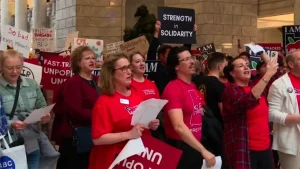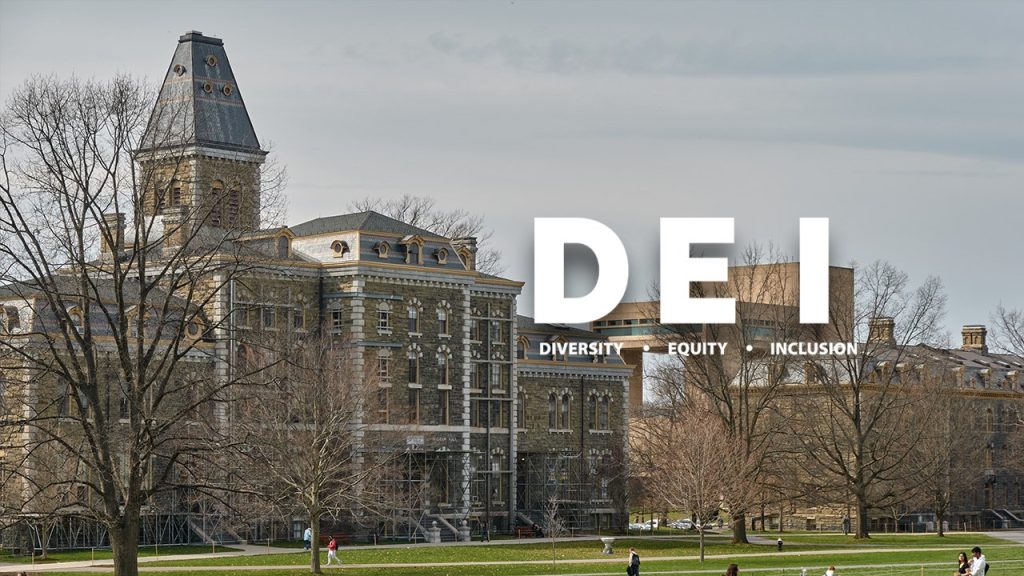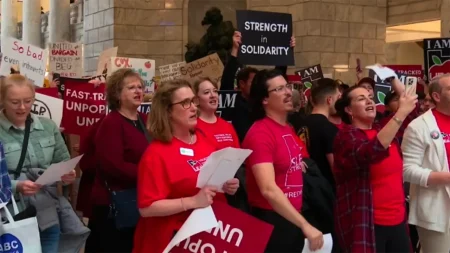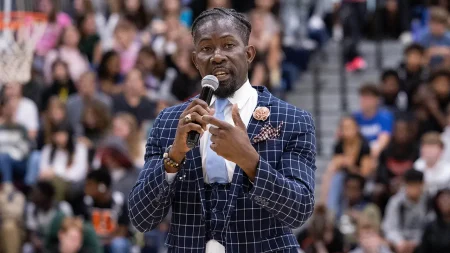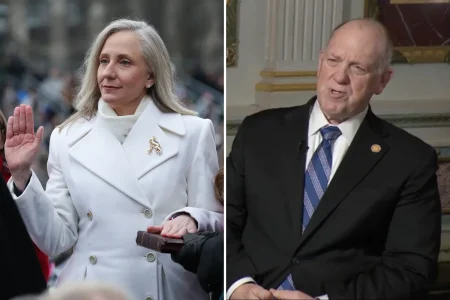Cornell Business School Navigates Delicate Balance Between Diversity and Inclusion
Cornell University’s Samuel Curtis Johnson Graduate School of Management has sparked controversy after students were instructed to self-select out of diversity recruiting events based on their identity. The directive, circulated by the school’s student council, asked students who don’t identify with “marginalized or underrepresented groups” to skip diversity-focused professional development events, raising questions about inclusion, equal access to opportunities, and the meaning of allyship in higher education.
The initiative, labeled “Allyship in Action,” defined allyship as “the active and continuous practice of using one’s privilege to support, advocate for, and stand with marginalized or underrepresented groups.” The student council’s email explicitly stated that students who don’t identify with specific marginalized groups “should respect that space and should not attend” corresponding diversity conferences. Perhaps most controversially, the message warned that attendance by non-target group members could negatively impact both their personal recruiting outcomes and Cornell’s relationships with recruiting organizations. These events include prestigious gatherings like the Reaching Out MBA conference for LGBTQ business students, the National Black MBA Conference, and conferences tailored to women and Hispanic students—all vital networking platforms in the competitive business school landscape.
The tension between the student council’s guidance and Cornell’s stated values is evident. While the SC Johnson College of Business publicly commits to “create a welcoming environment for all” and emphasizes “inclusion, engagement, impact, and community” as core values, the directive effectively creates boundaries around who can access certain professional development opportunities. Cornell’s business school boasts significant diversity, with more than a third of students identifying as Asian, Black, Hispanic, or Indigenous, and over half coming from outside the United States. The institution supports over 25 diversity-related student groups and offers specialized courses on inclusive leadership—making the restrictive guidance particularly notable against this backdrop of professed inclusivity.
Student reactions have been mixed, with some expressing concern about limiting access to valuable networking opportunities during challenging economic times. One anonymous MBA student criticized the guidance as “abhorrent,” arguing that restricting “access to intimate networking opportunities based on identity rather than merit” runs counter to principles of true equality and potentially violates equal opportunity laws. The student highlighted the scarcity of MBA job prospects in the current economy, suggesting that such restrictions disproportionately disadvantage students already navigating a competitive job market. While Cornell officially maintains that these conferences are open to all students, the university has not directly addressed the student council’s warnings about potential career consequences for those who attend against the guidance.
This controversy emerges amid broader scrutiny of Cornell’s diversity and civil rights practices. The university faces federal investigations into alleged civil rights violations, with the Trump administration freezing over $1 billion in federal funding to Cornell in April. In August, Cornell renamed its Office of Academic Diversity Initiatives to the Office of Academic Discovery and Impact—a change some reports connect to the funding dispute, though Cornell describes it as a strategic rebranding. These developments situate the current debate within a larger national conversation about how universities balance diversity initiatives with equal opportunity principles, especially as Supreme Court decisions have reshaped the landscape of diversity programming in higher education.
The situation raises fundamental questions about the nature of inclusion and allyship in academic and professional settings. While creating supportive spaces for underrepresented groups has become a standard practice at elite institutions, the line between fostering belonging and restricting opportunity remains contentious. Students face difficult choices between respecting guidance meant to protect marginalized communities and advocating for equal access to career-advancing opportunities. As Cornell and other universities navigate these tensions, they must reconcile competing values: honoring the distinct experiences of marginalized groups while ensuring that diversity initiatives don’t inadvertently create new forms of exclusion in the pursuit of equity. The resolution of this particular controversy may signal broader trends in how prestigious institutions approach diversity, equity, and inclusion in a post-affirmative action landscape.


